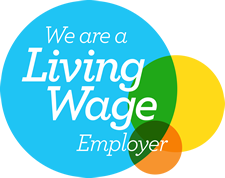
Insights
Helping not-for-profit organisations develop and sustain
the highest levels of employee and volunteer engagement

Insights
In this guest blog, Trowers Hamlins Partner and Strategic People 2020 workshop leader Emma Burrows explores unconscious bias and the part it may place in decisions about things such as recruitment or promotion. Unconscious bias is something which employers must be aware of and take steps to counteract.
The invisible factors which can influence our behaviour and shape our decision-making are known as unconscious bias. People may be more likely to favour people who look like them, or share their background or values. This is known as the “affinity bias”. Another form of bias, “halo bias”, is when a positive trait is transferred onto a person without anything much actually being known about them. Acas gives the example of those who are dressed conservatively often being seen as being more capable in an office environment.
Behaviour which reinforces the bias is noticed, whilst behaviour which does not is ignored. This is how someone making a decision based on their unconscious biases will justify that decision. Everyone will have their own particular set of unconscious biases which, in an employment context, can influence decisions about recruitment, promotion and staff development and result in a less diverse workforce.
Where unconscious bias is against a protected characteristic it can be discriminatory. For example an employee ignoring the skills and experience of a candidate who has a different racial background from them, who then goes onto appoint a person who shares their race, may be guilty of discriminating against the unsuccessful candidate.
It’s also worth noting that unconscious bias may also operate against traits or characteristics which aren’t protected by the law but may well impact on an employer’s diversity profile.
Employers should consider introducing unconscious bias training to enable managers to identify where their unconscious affinities or prejudices might lie.
Getting into the habit of justifying decision for promotion and other areas where decision making is required is something to be encouraged. Decisions should not be rushed, and all the issues surrounding the decision-making process should be properly considered and fully documented. All decisions should be made in a robust and consistent way.
Name-blind recruitment is a practice that many employers now follow. Removing information such as name, gender and age from application forms is a good way of ensuring that unconscious bias doesn’t infect the first stage of the recruitment process.
Finally, ensure that your equality and diversity practices are up-to-date and being followed!
5 Linford Forum
Rockingham Drive
Milton Keynes
MK14 6LY
UK
Company No: 4509427
